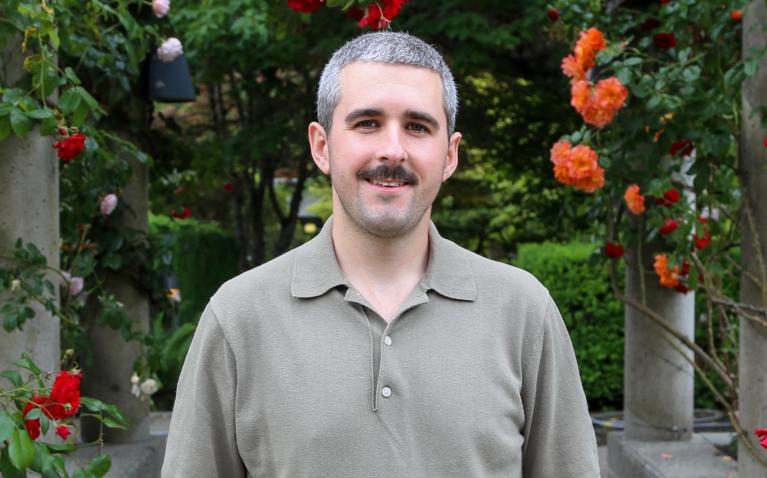
Parker Muzzerall
Doctor of Philosophy in Sociology (PhD)
Research Topic
Climate politics and public policy
G+PS regularly provides virtual sessions that focus on admission requirements and procedures and tips how to improve your application.
These videos contain some general advice from faculty across UBC on finding and reaching out to a potential thesis supervisor.
Theses completed in 2010 or later are listed below. Please note that there is a 6-12 month delay to add the latest theses.
Food Justice activism transforms poor communities of colour in the United States by increasing access to fresh, nutritious food. While the language of food justice has been incorporated into Canada, few studies have empirically analyzed how Canadian food activists interpret its central tenets and goals. I interviewed volunteers, committee members, and the lead organizer of a justice-oriented local food organization that implemented an emergency food program in Vancouver’s Downtown Eastside during the 2020-2021 COVID-19 pandemic. My findings show that participants understand and enact food justice in two different but complementary ways. First, participants respond to the stigma that free food recipients face by strategically redefining the meaning of free food recipients. This redefinition occurs through four mechanisms of destigmatization: combining social categories, removing blame, drawing equivalences, and restoring agency. Second, when conceptualizing an ideal local food organization, participants demonstrate a thick democratic imagination. Specifically, they visualize a grassroots, anti-bureaucratic, and culturally inclusive food hub that facilitates food education through a community kitchen and garden. Moreover, participants prioritize Indigenous led-food initiatives and systems, revealing a thick and imaginative democratic imagination. The significance of these findings is twofold. On the one hand, my research reveals how the availability of symbolic resources (e.g., the concept of a shared community) facilitates the destigmatization of low-status groups. On the other hand, my research demonstrates that food activists on Vancouver’s Downtown Eastside have thick democratic imaginations and that these imaginations expand when accounting for Indigenous reconciliation. Altogether these findings show that while interpretations of food justice are contextual, it retains its transformative potential.
View record
In order to prevent the most severe impacts of climate change, we must transition to a low-carbonenergy system. However, the process of decarbonization faces significant cultural andpolitical barriers, especially within fossil fuel producing regions where the impacts ofdecarbonization policy are felt most directly. To overcome these barriers, both scholars andpolicy makers have begun to call for a just transition for affected communities in an effort tocentre justice and equity concerns in the process of decarbonization. While the limited attemptsat implementing a just transition program have largely been confined to the coal sector, theCanadian Federal Government has started to develop a more expansive just transition frameworkfor the entire fossil fuel sector. Little is known, though, about how those living and working inthe Canadian Oil Sands, home to 97% of Canadian fossil fuel reserves, feel about this proposal.To address this gap, I orient this study around the question: how do those living and working inthe Canadian Oil Sands interpret the proposal for a just transition? Using data collected through18 semi-structured interviews with industry and community members in the Oil Sands town ofFort McMurray, I show how the cultural and political conditions endemic to fossil fuelproducing regions are largely incommensurate with a just transition program as it is currentlyconceptualized in the scholarly literature and materialized through government policy. Drawingon my participants’ perspectives on climate change, low-carbon energy alternatives, regionalpolitics, and the proposal for a just transition specifically, I offer evidence for this conclusionwhile also advocating for the continued development of just transition programs, albeit ones thatcenter the localized cultural conditions and concerns of the communities for which they areintended to serve.
View record
If this is your researcher profile you can log in to the Faculty & Staff portal to update your details and provide recruitment preferences.